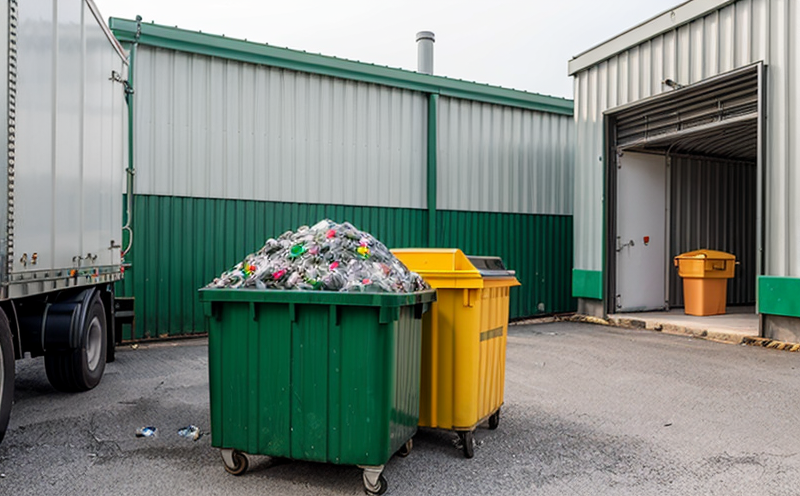
-
Pharmaceutical Compliance-
Pharmaceutical Environmental Compliance-
Waste Management Compliance in Pharmaceutical Industry
We provide comprehensive solutions designed to help our clients mitigate risks, enhance performance, and excel in key areas such as quality, health & safety, environmental sustainability, and social responsibility.
Discover
For many years, our organization has been operating successfully, boasting modern laboratories that meet international standards. These laboratories are equipped with the latest technology devices and equipment, and we have built a strong team of experienced and trained personnel to operate them.
DiscoverWelcome to Eurolab, your partner in pioneering solutions that encompass every facet of life. We are committed to delivering comprehensive Assurance, Testing, Inspection, and Certification services, empowering our global clientele with the ultimate confidence in their products and processes.
Discover
-
Pharmaceutical Compliance-
Pharmaceutical Environmental Compliance-
Waste Management Compliance in Pharmaceutical IndustryWaste Management Compliance in the Pharmaceutical Industry: A Critical Aspect of Responsible Manufacturing
The pharmaceutical industry is a highly regulated sector that requires adherence to strict guidelines and standards for waste management. The generation, handling, treatment, and disposal of waste are critical aspects of pharmaceutical manufacturing that demand careful consideration and compliance with regulatory requirements. Failure to manage waste properly can lead to environmental pollution, public health risks, and severe financial consequences.
Pharmaceutical companies are responsible for managing various types of waste generated during the production process, including hazardous waste, non-hazardous waste, and special wastes such as pharmaceuticals and personal care products (PPCPs). To ensure compliance with regulations, pharmaceutical manufacturers must implement a comprehensive waste management program that covers all aspects of waste generation, handling, treatment, and disposal.
Regulatory Framework for Waste Management in the Pharmaceutical Industry
The regulatory framework for waste management in the pharmaceutical industry is established by various government agencies and international organizations. In the United States, the Environmental Protection Agency (EPA) regulates waste management under the Resource Conservation and Recovery Act (RCRA), which requires pharmaceutical manufacturers to follow specific guidelines for hazardous waste generation, handling, and disposal.
The European Unions (EU) Waste Framework Directive (2008/98/EC) sets out a comprehensive framework for waste management in EU member states. The directive emphasizes the importance of reducing waste generation, promoting recycling and reuse, and ensuring safe and environmentally sound disposal of waste.
Waste Classification and Handling
Pharmaceutical companies must classify waste generated during the production process into different categories based on their chemical properties and potential hazards. Hazardous waste, which includes chemicals, solvents, and other toxic substances, requires special handling and treatment procedures to minimize risks to human health and the environment.
Some key points to consider when classifying and handling waste in the pharmaceutical industry include:

Cosmetic Product Testing
The Complex World of Cosmetic Product Testing The cosmetics industry is a multi-billion-dollar ma...

Electrical and Electromagnetic Testing
Electrical and Electromagnetic Testing: A Comprehensive Guide Introduction Electrical and electrom...

Military Equipment Standards
Military Equipment Standards: Ensuring Effectiveness and Safety The use of military equipment is a ...

Healthcare and Medical Devices
The Evolution of Healthcare and Medical Devices: Trends, Innovations, and Challenges The healthcare...

Lighting and Optical Device Testing
Lighting and Optical Device Testing: Ensuring Performance and Safety Lighting and optical devices a...

Environmental Simulation Testing
Environmental Simulation Testing: A Comprehensive Guide In todays world, where technology is rapidl...

Renewable Energy Testing and Standards
Renewable Energy Testing and Standards: Ensuring a Sustainable Future The world is rapidly transiti...

Transportation and Logistics Certification
Transportation and Logistics Certification: A Comprehensive Guide The transportation and logistics ...

Electromechanical Safety Certification
Electromechanical Safety Certification: Ensuring Compliance and Protecting Lives In todays intercon...

Hospitality and Tourism Certification
Hospitality and Tourism Certification: Unlocking Opportunities in the Industry The hospitality and ...

Trade and Government Regulations
Trade and government regulations play a vital role in shaping the global economy. These regulations ...

Chemical Safety and Certification
Chemical safety and certification are critical in ensuring the safe management of products and proce...

Fire Safety and Prevention Standards
Fire Safety and Prevention Standards: Protecting Lives and Property Fire safety and prevention stan...

Food Safety and Testing
Food Safety and Testing: Ensuring the Quality of Our Food As consumers, we expect our food to be sa...

Battery Testing and Safety
Battery Testing and Safety: A Comprehensive Guide As technology continues to advance, battery-power...

Pressure Vessels and Installations Testing
Pressure Vessels and Installations Testing Pressure vessels are a critical component of various ind...

Railway Industry Compliance
Railway Industry Compliance: Ensuring Safety and Efficiency The railway industry is a critical comp...

Pharmaceutical Compliance
Pharmaceutical compliance refers to the adherence of pharmaceutical companies and organizations to l...

Aviation and Aerospace Testing
Aviation and Aerospace Testing: Ensuring Safety and Efficiency The aviation and aerospace industr...

Agricultural Equipment Certification
Agricultural equipment certification is a process that ensures agricultural machinery meets specific...

Construction and Engineering Compliance
Construction and Engineering Compliance: Ensuring Safety, Quality, and Regulatory Adherence In the ...

Consumer Product Safety
Consumer Product Safety: Protecting Consumers from Harmful Products As a consumer, you have the rig...

NEBS and Telecommunication Standards
Network Equipment Building System (NEBS) and Telecommunication Standards The Network Equipment Bu...

Energy and Sustainability Standards
In today’s rapidly evolving world, businesses face increasing pressure to meet global energy a...

IT and Data Center Certification
IT and Data Center Certification: Understanding the Importance and Benefits The field of Informatio...

Automotive Compliance and Certification
Automotive Compliance and Certification: Ensuring Safety and Efficiency The automotive industry is ...

Industrial Equipment Certification
Industrial equipment certification is a critical process that ensures industrial equipment meets spe...

Product and Retail Standards
Product and Retail Standards: Ensuring Quality and Safety for Consumers In todays competitive marke...

Environmental Impact Assessment
Environmental Impact Assessment: A Comprehensive Guide Environmental Impact Assessment (EIA) is a c...

MDR Testing and Compliance
MDR Testing and Compliance: A Comprehensive Guide The Medical Device Regulation (MDR) is a comprehe...